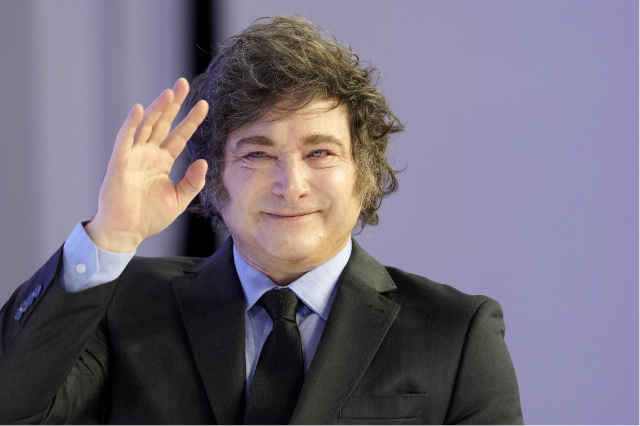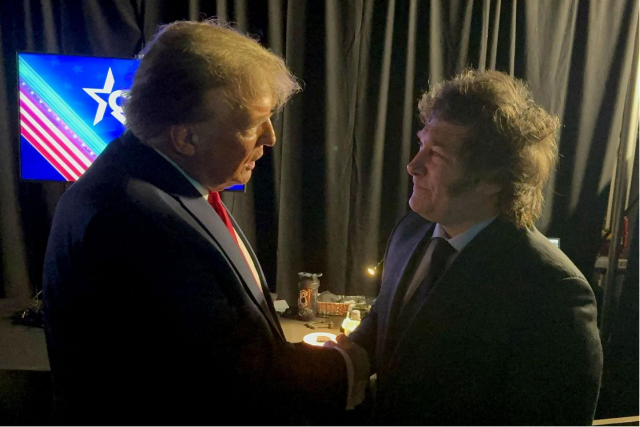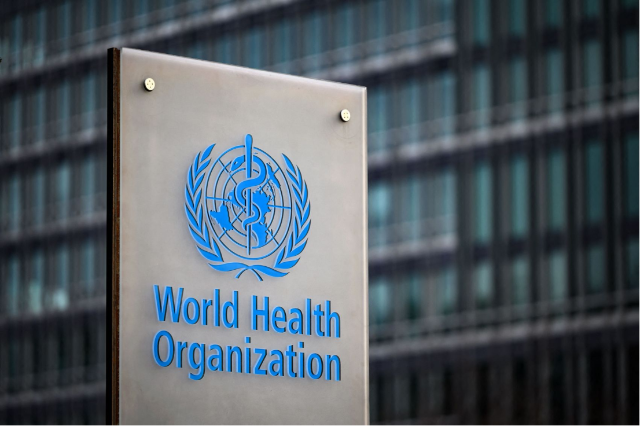Argentina President Javier Milei announced on February 5 that the country will pull out of the World Health Organization (WHO). The announcement followed in the footsteps of former US President Donald Trump, who had the health body in his gunsights on the first day of his second term in office.
Manuel Adorni, a spokesman for President Milei, said the decision to exit the WHO was led by "deep differences regarding health management, especially during the pandemic." A statement later released from the presidential office called out the WHO, which was said to have caused economic damage to Argentina during the COVID-19 pandemic by "(promoting) endless quarantines."
It is a blame game
The accusation came loud and clear. Adorni said Argentina was chained to the longest lockdown in human history and lacked independence in the face of the political influence of some states in the WHO. President Milei depicted the situation as a "caveman quarantine that involved one of the most outlandish crimes against humanity in history."
"We Argentinians will not allow an international organization to intervene in our sovereignty, much less in our health," Adorni added. "It reaffirms our path toward a country with sovereignty also in health matters."

Argentina's President Javier Milei waves as he arrives for his speech at the Annual Meeting of the World Economic Forum in Davos, Switzerland, Thursday, Jan. 23, 2025. (Photo / CFP)
The withdrawal was expected to offer "greater flexibility to implement policies" in Argentina's interests and "greater availability of resources."
The decision has received immediate criticism from critics and health organizations, which fear that withdrawing from the WHO will reduce the country's access to funding.
Although the WHO operates in Argentina, Adorni said his country does not receive financing from the health management agency. "Therefore, this measure does not represent a loss of funds for the country, nor does it affect the quality of services," he said.
A moth to the flame
For many, Milei, who proclaimed himself an "anarcho-capitalist," acted to echo Trump, his ally, who has also criticized the WHO for its mishandling of the pandemic. Many critics interpreted his move as an attempt to further align himself with Trump.
In November 2024, Milei visited Palm Beach, Florida, and became the first foreign leader to meet with Trump after his election victory. He was one of three Latin American presidents present at Trump's inauguration at the US Capitol.

President Javier Milei and US President Donald Trump shaking hands at the annual Conservative Political Action Conference (CPAC) meeting on February 24, 2024. (Photo / CFP)
"With Argentina's departure from the WHO, Milei becomes Trump's total puppet," wrote Argentine congressman Gabriel Solano in a social media post.
There are even more sides to the worship. Following Trump's lead, the libertarian has also revealed plans to exit the Paris Climate Agreement and build a 200-mln wire fence along the border with Bolivia to control immigration.
Since taking office, Milei has adopted austerity measures in state healthcare. The latest one entailed 1,400 layoffs at the Ministry of Health in January, which was believed to signal a tight budget.
Worry exists at the same time. The country might be overestimating what Trump has to offer in return.
Some claimed that as a peripheral player on the global stage, Argentina does not have enough resources like the U.S. to be self-sufficient. The vulnerabilities Argentina faces now are obvious—foreign debt pressure and inflation in its sluggish economy, all of which dictate long and strong commitment from the new leadership.
For Trump, it seemed he didn't care if Argentina was an ally or an opponent, given the fact that he also equally imposed tariffs on Argentina in his first term, just like on any other country in rivalry with the U.S.
Not many would possibly agree that Argentina will solve its challenges by sitting closer to Washington. For Argentina, it might be dangerous trying to be a 'simp' in such a relationship.
Will the dominos fall?
The country's departure from the WHO, following the same direction as Trump, also prompted questions: will many more countries follow and do the same?
To some extent, if more states pull out, the credibility of the WHO as the one truly global health body could take a devastating blow.
According to its own data, the organization's annual budget was calculated at $6.8 billion (£5.5 billion). Under the Biden administration, the U.S. remained the largest funder of the WHO. In the year 2023 alone, the country contributed nearly one-fifth of the agency's budget. Argentina, on the other hand, contributes roughly $8 million a year. For now, the agitated member is unlikely to make any significant difference in how the organization navigates, and it is not clear whether other nations will step up to fill the gap.

WHO's headquarters is in Geneva. (Photo / CFP)
WHO was founded in 1948 in an attempt to safeguard the world's health. Its constitution, signed by all UN members at the time, warned that 'unequal development' in the health systems of different countries poses a 'common danger.'
Today, WHO is present in more than 150 locations around the world, rallying efforts to expand universal health coverage and coordinating the international response to health-related emergencies, from yellow fever to cholera and Ebola.
After the U.S. and Argentina stepped down, WHO's ability to cope with emergencies such as an Ebola outbreak, MPOX, or COVID-19 will sadly be undermined for sure.
If progress is reversed in fighting infectious diseases such as malaria, tuberculosis, and HIV globally, the consequences will not be any smaller for civilians in any states that bolted from the WHO, whether it is about health or scientific collaboration.
Everyone wants the WHO to play the fair game. This should prompt further reforms in how the WHO works so that it can better serve the public health needs of people worldwide.
Reporter | Guo Zedong
Editor | Yuan Zixaing, James, Shen He
















